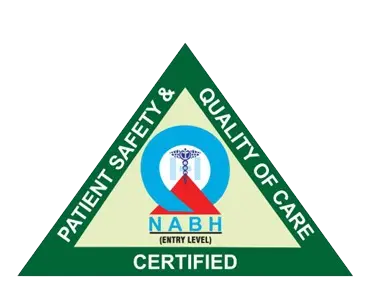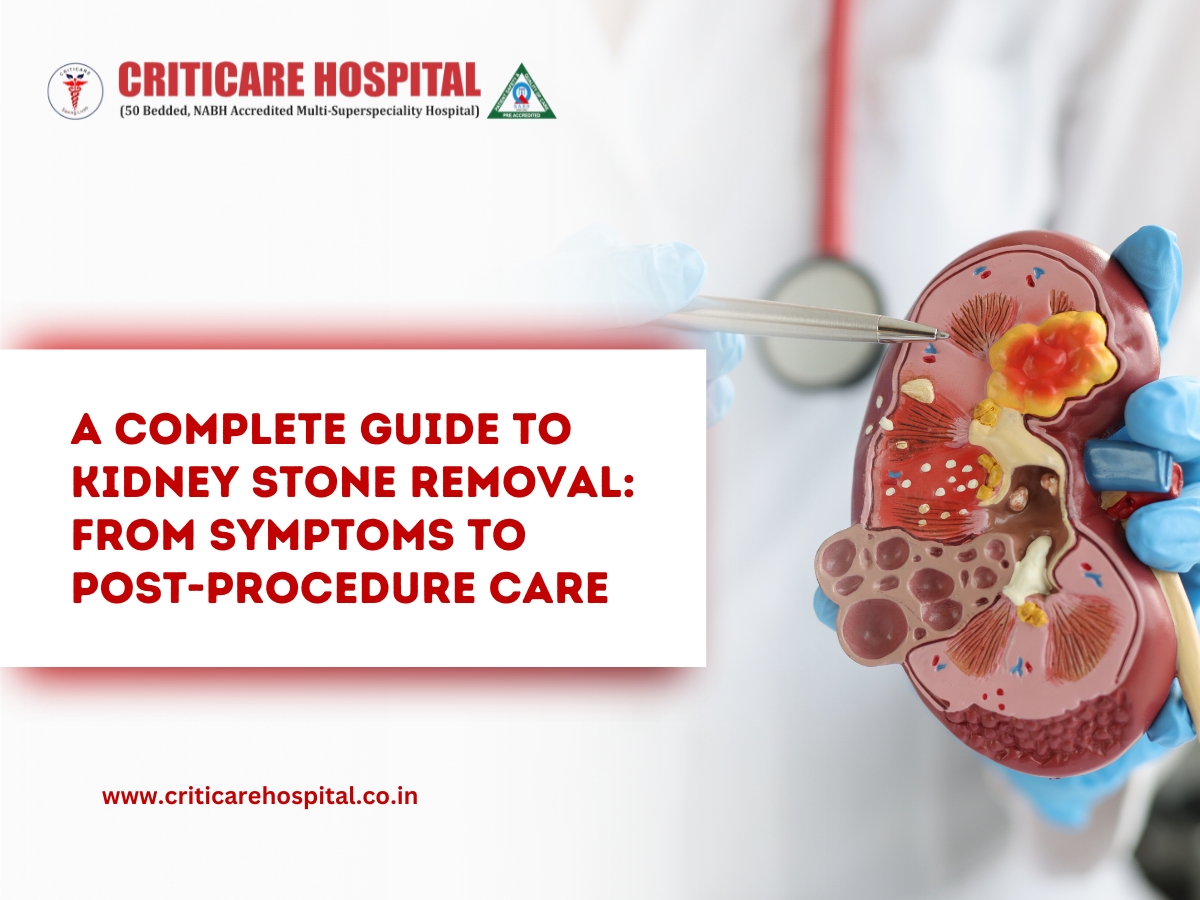Kidney stones affect large numbers of people worldwide because they represent a widespread health condition. Minor mineral solids can become the cause of severe pain and sickness coupled with vomiting before leading to dangerous medical conditions. The complete tutorial explores kidney stone indications and reveals diagnosis methods and treatment plans together with steps you need to follow for healing.
Getting to Know Kidney Stones:
The balance of water and salts along with other constituents in urine can cause small rigid solid mineral masses to form within the kidneys. Kidney stones exist in different sizes from fine sand grains to giant pebbles while creating serious discomfort during their presence.
Kidney Stone symptoms:
The size and position of a kidney stone determine what symptoms will appear during an attack. Common signs include:
- Pain enters suddenly in the side area or across the back part close to the rib section
- The discomfort from kidney stones extends from the lower stomach area to the area in front of the groin.
- Feeling sick and throwing up
- Peeing often or with pain
- Blood in the pee
- Fever and chills
Diagnosing Kidney stones:
Seeing a doctor immediately stands as the first step when you suspect having a kidney stone. After performing health history inquiries your doctor will examine you while conducting tests to determine if you have kidney stones. The usual tests include:
- Looking at your pee to spot blood, germs, and other stuff
- Taking pictures of your insides with X-rays, CT scans, or ultrasound to find the stone
- Checking your blood to see if you have an infection or other health issues
How to Get Rid of Kidney Stones:
Treatments for kidney stones depend on their size and location within the body and the extent of discomfort they cause to patients. There are different types of kidney stone removal which healthcare professionals use to manage kidney stones. Here are some common kidney stone treatment options:
- Doctors permit the natural passing of small stones when these stones do not produce severe symptoms.
- Doctors distribute both medicinal pain relievers and anti-inflammatory drugs to treat medical patients experiencing pain and swelling.
- Visits to a doctor typically do not require an invasive procedure since Shock Wave Lithotripsy functions without cutting. The medical procedure applies shock waves to break stones into microscopic pieces which can exit the body
- Ureteroscopy requires performing a minor surgery through a small incision. A medical specialist uses a thin scope to guide its operation through both the pee tube and bladder for stone extraction.
- Minimal incision surgery at the back will extract the stone through Percutaneous Nephrolithotomy.
What You Can Expect When Getting Kidney Stones Removed
When getting kidney stones removed patients should expect specific outcomes during their operation. Hospitalized patients who undergo kidney stone removal surgery should expect the following sequence of events:
- Surgical readiness includes a requirement to skip eating and drinking between 8 to 10 hours before the surgical procedure.
- Anesthesia will control your body through general or relaxation methods during surgery.
- Surgeons use two methods to extract stones including making small cuts in the back or guiding a scope through your urethra and bladder to reach the stone.
- After surgery patients need to stay in a recovery area for a few hours while nurses will monitor their condition.
How to Take Care of Yourself After Kidney Stone Removal
Doctors provide essential recovery advice for patients who had kidney stone removal surgery. Find kidney stone recovery success with these following guidelines
- Being active is essential following surgery but you should rest for several days to obtain complete body healing.
- Patients should use the medical guidelines provided by their physician to manage their pain.
- Fluid Intake: Drink lots of liquids to help wash out any stone bits that might be left.
- Follow-Up Appointments: Show up to all check-ups with your doctor to make sure you’re healing the right way.
Preventing Kidney Stones
The following actions will help you avoid developing kidney stones despite their discomfort and pain.
- The constant intake of plenty of fluids enables mineral and salt elimination which stops kidney stones from forming.
- Consuming a diet containing minimal salt levels along with little sugar and animal protein helps stop kidney stone formation.
- Exercise happens regularly because it helps your kidneys work better and it decreases stone formation risk.
- Controlling high blood pressure together with diabetes and obesity management helps decrease the possibilities of kidney stones formation.
Note from CritiCare Hospital:
The medical staff at CritiCare Hospital Lucknow recognizes that appropriate time-sensitive kidney stone treatments are vital for patient health outcomes. Kapoor Nursing Hospital employs experienced urologists together with medical professionals who deliver personalized examinations and treatment to each patient.
Our hospital delivers three exceptional kidney stone extraction methods known as Shock Wave Lithotripsy together with Ureteroscopy and Percutaneous Nephrolithotomy. Our hospital equipment combined with advanced facilities delivers optimal care to all patients under our medical services.
The staff at our organization vows to deliver complete healthcare and assistance throughout all stages of patient treatment. Healthcare decisions become easier for patients whose knowledge grows through the information we provide to them.
We strongly advise that anybody dealing with kidney stones needs to get immediate medical attention. Hotlines at all times to help patients through their entire journey
Conclusion
Medical facilities commonly perform kidney stone removal procedures because they reduce severe pain experienced by patients. Having knowledge about the symptoms combined with diagnosis methods and available treatment approaches and post-procedure care enables better health decision-making. Comply always with your doctor’s instructions and develop prevention methods to stop future kidney stone occurrences.




